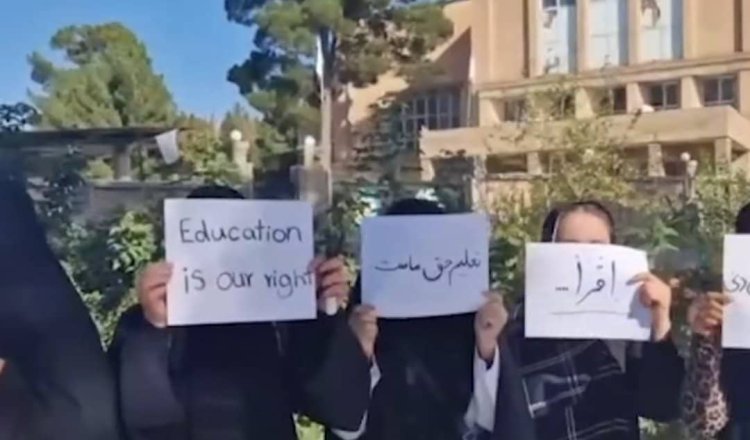Afghanistan's university academic year begins without female students

The Taliban’s Ministry of Higher Education has announced that the spring semester for universities in Afghanistan’s colder provinces will commence on March 5. However, it has now been over 800 days since universities were shut to women and girls across the country.
Since their return to power, the Taliban have imposed sweeping restrictions on female education. On September 17, 2021, the Taliban’s Ministry of Education banned girls from attending school beyond the sixth grade.
On December 20, 2022, the Ministry of Higher Education issued another decree barring women from attending all public and private universities in Afghanistan until further notice.
In response to these restrictions, many female students turned to medical institutes as their last opportunity for education. However, on December 3, 2024, Taliban leader Hibatullah Akhundzada issued an order banning women from studying in these institutions as well.
The Taliban further escalated their crackdown on education by shutting down girls' learning centers in several provinces, including Herat and Ghor, in January 2025. This move has effectively closed all remaining educational pathways for Afghan women and girls.
The decision to bar women from higher education has sparked widespread protests across Afghanistan. Female students have repeatedly demonstrated in Kabul, Herat, Faryab, Balkh, and several other provinces. However, the Taliban have responded with force, dispersing protests through beatings, arrests, and intimidation.
On December 21, 2022, a group of women and girls gathered outside Kabul University to protest the ban. Taliban forces quickly intervened, breaking up the demonstration and confiscating the protesters' phones.
Similarly, on December 24, 2022, female students in Herat took to the streets, chanting slogans such as “Open the universities” and “Education is our right.” The Taliban responded by using fire trucks to spray water on the demonstrators, forcibly dispersing the crowd.
The United Nations and numerous human rights organizations have repeatedly urged the Taliban to lift the ban on female education. However, Taliban officials have dismissed these calls, labeling the issue as an internal matter and rejecting international appeals for change.
On January 24, 2025, the United Nations Assistance Mission in Afghanistan (UNAMA) marked International Education Day by condemning the ban as “tragic and unacceptable.” UNAMA called on the Taliban to immediately reverse their decision.
Despite global condemnation, the Taliban’s latest actions indicate their continued commitment to policies that exclude women and girls from educational opportunities.
Experts from the United Nations have warned that this ongoing ban represents a significant setback for global education and will not only harm Afghan women today but also have long-term consequences for future generations.
